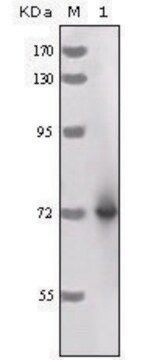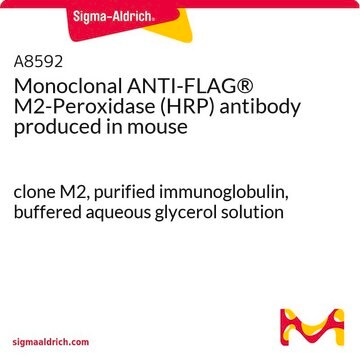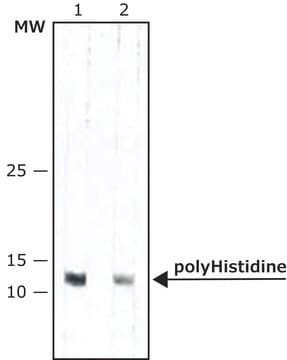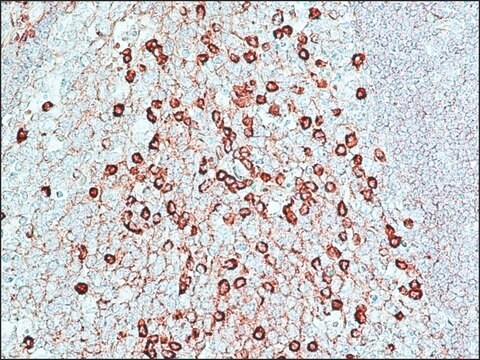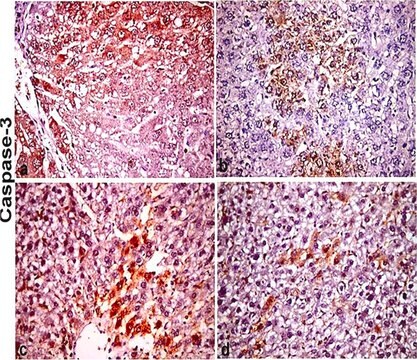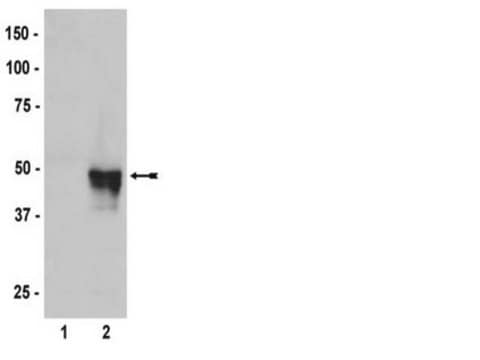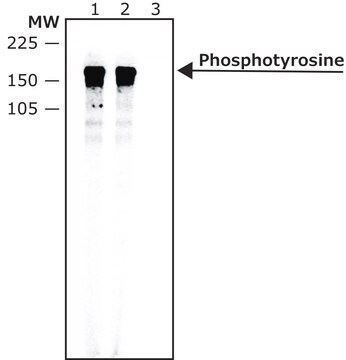P2419
Monoclonal Anti-Peroxidase antibody produced in mouse
clone P6-38, ascites fluid
Sign Into View Organizational & Contract Pricing
All Photos(1)
About This Item
conjugate:
unconjugated
application:
ELISA (i)
clone:
P6-38, monoclonal
species reactivity:
horseradish
citations:
1
technique(s):
indirect ELISA: 1:5,000 using mouse primary antibody, bridging antibody and horseradish peroxidase
Recommended Products
biological source
mouse
Quality Level
conjugate
unconjugated
antibody form
ascites fluid
antibody product type
primary antibodies
clone
P6-38, monoclonal
contains
15 mM sodium azide
species reactivity
horseradish
technique(s)
indirect ELISA: 1:5,000 using mouse primary antibody, bridging antibody and horseradish peroxidase
isotype
IgG1
shipped in
dry ice
storage temp.
−20°C
target post-translational modification
unmodified
General description
Monoclonal anti-peroxidase (mouse IgG1 isotype) is derived from the hybridoma produced by the fusion of mouse myeloma cells and splenocytes from an immunized mouse.
Immunogen
horseradish peroxidase
Application
Monoclonal Anti-Peroxidase antibody may be used for:
- immunocytochemistry
- indirect ELISA (1:5,000)
- immunohistochemistry
- immunoblotting
Biochem/physiol Actions
Peroxidase is often used as an enzyme label for antibodies during analyses of target antigens. Peroxidases aids in substrate conversion indicated by the formation of a coloured product. In an alternative procedure, an anti-enzyme antibody can be used to bridge a primary antibody and enzyme complex for the study of target proteins. Anti-peroxidase antibodies are also used to prepare peroxidase-anti-peroxidase (PAP) soluble complexes. Monoclonal Anti-Peroxidase antibody can be used for signal amplification in a wide range of immunological techniques. The product is specific for horseradish peroxidase. Such immunoassays are useful tools to detect antigens, toxins, bacteria and viruses.
Disclaimer
Unless otherwise stated in our catalog or other company documentation accompanying the product(s), our products are intended for research use only and are not to be used for any other purpose, which includes but is not limited to, unauthorized commercial uses, in vitro diagnostic uses, ex vivo or in vivo therapeutic uses or any type of consumption or application to humans or animals.
Not finding the right product?
Try our Product Selector Tool.
Storage Class Code
10 - Combustible liquids
WGK
nwg
Flash Point(F)
Not applicable
Flash Point(C)
Not applicable
Choose from one of the most recent versions:
Already Own This Product?
Find documentation for the products that you have recently purchased in the Document Library.
Leonid P Nezlin et al.
The Journal of comparative neurology, 464(3), 257-268 (2003-08-06)
Structural and functional investigations were carried out to study olfactory glomeruli in the main olfactory bulb (OB) in tadpoles of the clawed frog, Xenopus laevis. Calcium imaging of odor response patterns of OB neurons revealed that the synapses within the
Our team of scientists has experience in all areas of research including Life Science, Material Science, Chemical Synthesis, Chromatography, Analytical and many others.
Contact Technical Service